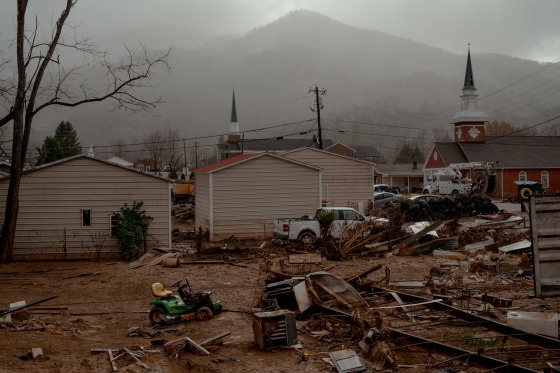AsHEVILLE, N.C. — Air Force veteran Nathan Garrison watched from a hotel parking lot as loader trucks removed chunks of rubble from a blocked road that once led to his home.
The trucks scooped up cement and dirt and tossed it into their waiting beds in a scene that would be played out for hours, days, even years.
“I lost everything,” said Garrison, 75, flicking Marlboro ashes from his scraggly white beard. “All my stuff went in the trash.”
More than two months after Hurricane Helene displaced tens of thousands of residents in the Blue Ridge Mountains of western North Carolina, the federal government's $500 million cleanup effort appeared to be making nary a dent.

The hurricane killed at least 223 people across the southeast, about half of them in North Carolina, authorities said.
In many places, it looks as if the storm struck yesterday. Entire blocks where homes once stood have been abandoned. Empty apartment complexes and waterlogged vehicles rot in the faint winter sun. Tree stumps and branches, trash and household appliances waste away on roadsides and in rivers.
Asheville resident Jeff Davis, 62, said he has tuned out the noise and adapted to living amid the chaos. He estimates half the people who lived in his several-hundred-unit apartment complex have left town for good after they initially hung in there for more than a week without potable water.
“I think people are just going about their business even though so many residents have disappeared and dropped off the face of the Earth,” Davis said. “You gotta accept reality, that this is what God has in store. This is what reality is. This situation is enormous.”
In Biltmore Village, built around an 8,000-acre estate that drew thousands of tourists a year, empty lots and hollow buildings are all that remain of the shops, restaurants and offices washed away in the floods.
Typically, the winter months draw millions of visitors to the alluring blue mountains, inviting hiking trails and live music venues. But all that is over for now.
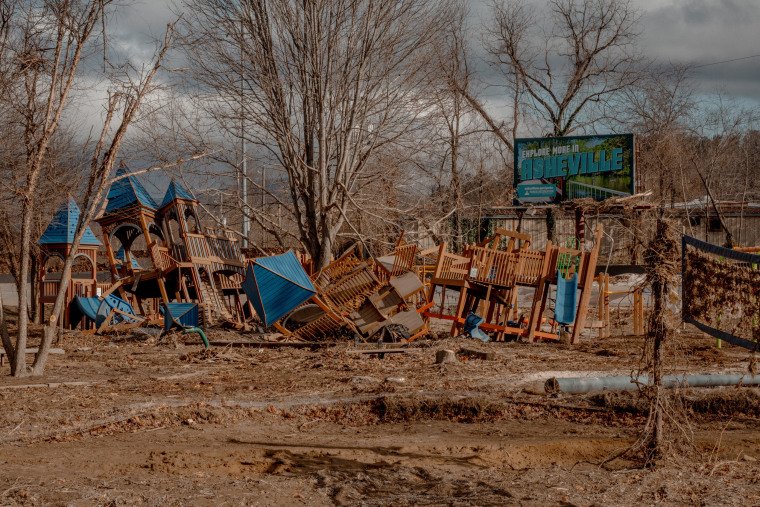
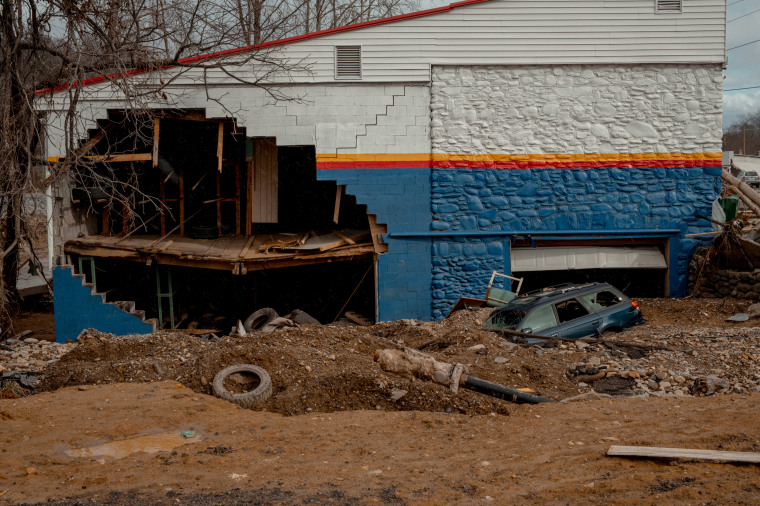
The nationally acclaimed gingerbread house competition was canceled, the Biltmore Estate is operating at a limited capacity, and a downtown holiday parade was scaled back to a jamboree, putting financial pressure on businesses that depend heavily on holiday patrons for survival, city officials said.
More than 100 small businesses in Asheville have closed because of infrastructure damage or declining revenue or both, Manheimer said.
“This would normally be the time of year where Asheville would be bustling with millions of visitors,” she said.
Vic Isley, president of Explore Asheville, expects Buncombe County to lose nearly $600 million in revenue this winter on travel, lodging and related spending.
“The last three months of the year are the peak of tourism season and hospitality in western North Carolina,” she said. “We need more visitors to come and support our local businesses.”
The county's unemployment rate is the highest in the state, at 8.8%, up from 2.5% in september, according to the state Commerce Department.
state and federal agencies acted swiftly after the storm struck North Carolina on sept. 26, helping move suddenly unhoused families into temporary shelter, distributing food and water to victims and spending several weeks restoring electricity.
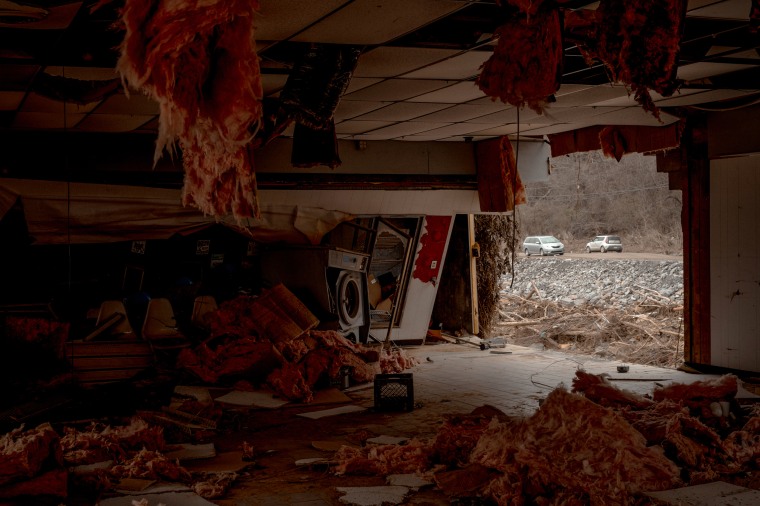
so far, nearly half of the 10,129 displaced households the Federal Emergency Management Agency has worked with have been placed in temporary shelters across the state, such as hotels, apartments and mobile homes, FEMA said. The remaining households have already found long-term housing, a spokesperson said.
While the temporary housing program was scheduled to end on Dec. 12, federal officials said that FEMA caseworkers wouldn’t force people from their temporary quarters and that they would work urgently to find them permanent shelter.
FEMA has spent $262 million on individual rental assistance and home repairs for Helene survivors in North Carolina, a spokesperson said. Another $274 million went to repairing infrastructure and removing debris. More financial help will be coming, the spokesperson said, but how much hasn't been established yet.
Local officials said they are grateful for the assistance, but much more aid will be needed to restore Asheville, Biltmore Village and surrounding areas to their former condition.
Manheimer and other North Carolina officials traveled to Washington last month to ask President Joe Biden and members of Congress for $25 billion to repair homes, roads, bridges and other infrastructure in western North Carolina.
“We’re asking for so many exceptions and rules [to be] interpreted broadly, because this was an abnormal hurricane because of landslides, massive flooding, wind damage and large amounts of debris,” Manheimer said.
Private road and bridge repairs are costly, and there isn’t a specific federal program designed to repair them, she said.
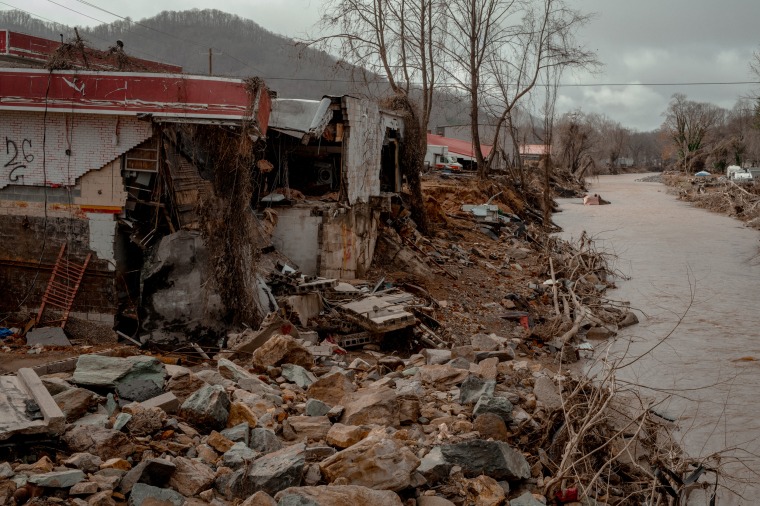
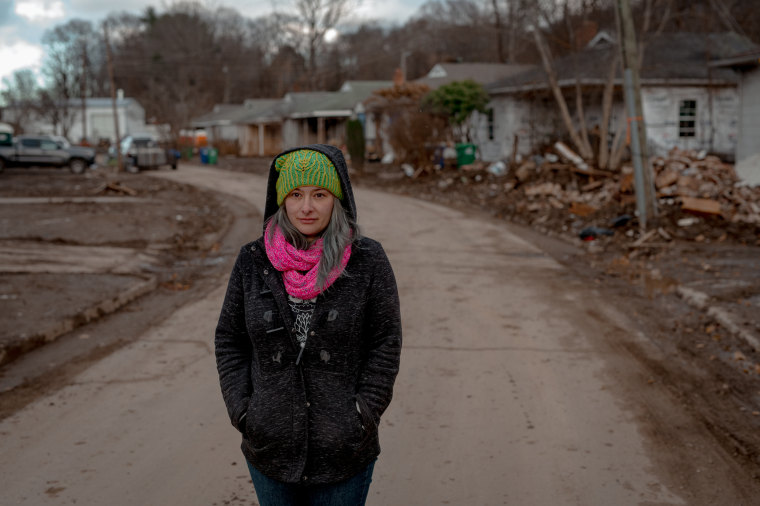
In nearby swannanoa, a rural community of 5,000 residents hard hit by the hurricane, entire residential blocks were abandoned and many homes were demolished. There's no telling when the cleanup will be complete, Fire Chief Anthony Penland said.
“It’s slow going. Human nature, we want to see it cleaned up as fast as possible, but we have to be patient,” he said. “There was a lot of widespread debris, and it could take two years before all of the cleanup efforts are complete.”
swannanoa resident Tissica schoch, 34, said that her house was the only one on her block left intact and that if any good came from the storm, it was that neighbors bonded.
“We didn’t know each other’s names, and then we all came together and figured out what our strengths were,” she said.
since then, she has become a leader and an advocate for those in need.
“Being displaced from your home, you don’t have the same level of privacy or dignity that you’re used to and space for yourself,” she said.
Jessie Dean, who owns the Asheville Tea Company, said the building where her company manufactured teas and herbs for national retail was lifted from the ground by the powerful floods and washed away. she lost $500,000 in assets and didn't have flood insurance.
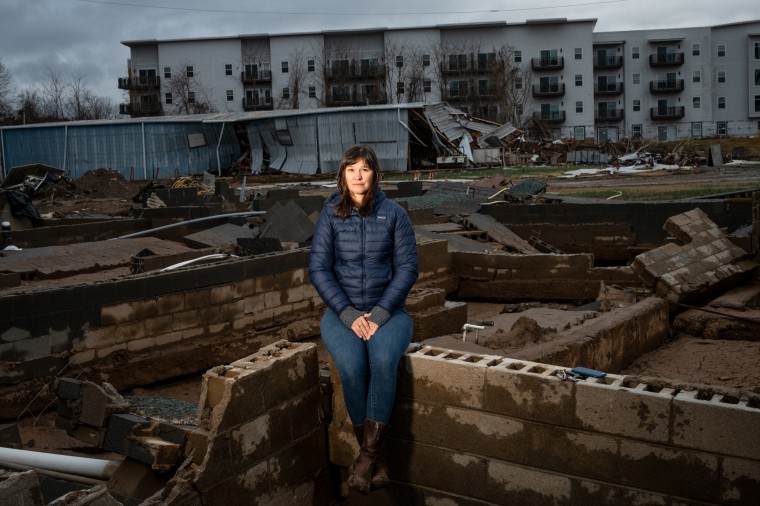
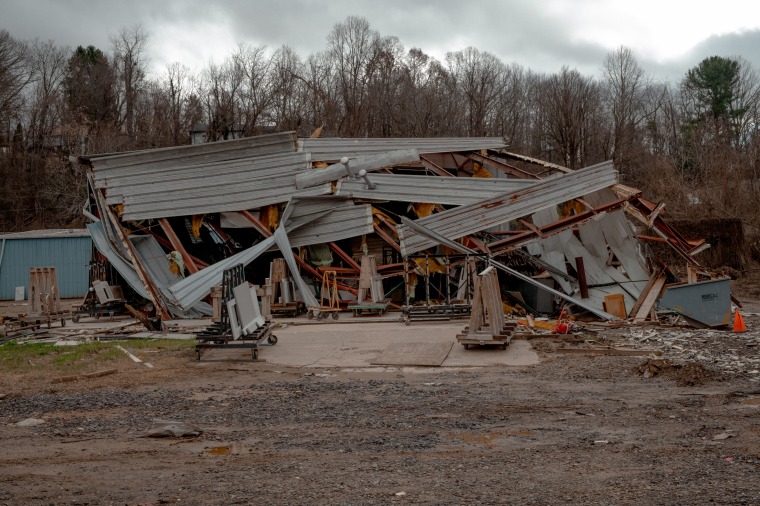
“I’m still processing,” said Dean, who started her business eight years ago. “It was so shocking and traumatic.”
she wants to rebuild her business not only for herself but also to show the world how much grit and determination the people of Buncombe County have, she said.
“There was never a question about that,” Dean said. “It’s hard to be resilient and strong.”
For those who were homeless before the storm, life could become even more difficult. Recently, Orica Hamilton, 35, was among about a dozen people still staying at a shelter set up inside a Gold’s Gym. But that lifeline is set to close at month's end.
“It’s kind of stressful,” said Hamilton, who was couch surfing before the hurricane. “I don’t have anywhere to go at the moment.”
